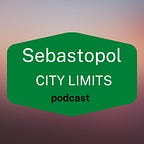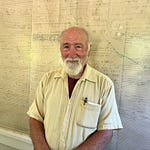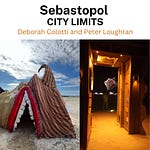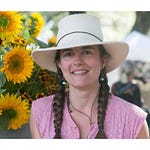There’s a new school in town. Well, not exactly. It’s a set of ideas about how to improve the old school. While the Analy/El Molino merger, and the resulting battle over the name of West County High School, would make anyone wary of promising change within the education system, Nicole Wilkinson, an Analy alumnae and teacher, gave a brilliant presentation at a school board meeting in January 2022 about the “New School Model.” It was well received by the board. However, at the same board meeting, Superintendent Toni Beal, a supporter of the New School Model, was dismissed.
Leadership changes at West County High created the impression that work on this model was paused, but Nicole insists that she has been moving ahead this spring, working with a cohort of teachers. She’s building support for the new school model, even as the details and leadership are being worked out on a 3-5 year implementation plan.
The new school model started with a grant from the CTE Foundation, and West County High School was selected along with Elsie Allen and Casa Grande in Sonoma County. What’s new is less about curriculum change and more about mindset shift, which includes culture and community. It seeks to create a better, more engaging educational experience for students and teachers, while helping to align the school with the Sonoma County “portrait of a graduate” and develop 21st Century skills.
Transcript
Nicole: What we see in the data is that kids are not engaged and they're not engaged everywhere. It's not just in West County, but it is true in West County. And there's a lot of reasons for that. One of them that I focused on this year is that the instruction does not meet the 21st Century needs of kids. And that's not because we're not working hard and trying our best.
Dale: Nicole Wilkinson is an educator working on something quite new for the West County High School District. Let me start by asking Nicole to introduce herself and give us a background on who she is.
Nicole: Hello. Thank you so much for having me. My name's Nicole Wilkinson and I am an Analy alumnae. I went to Holy Names University and studied criminology, became a probation officer with that degree and was immediately dissatisfied. It felt reactive, not proactive.
So I jumped into education as an intern teacher, which is nuts thinking back on it. I started off my teaching career teaching social science, PE and yoga to seventh and eighth graders at West County Charter Middle School, a project the West Sonoma County High School District tried to launch in Forestville.
We spent two years trying to create a design thinking experience for middle school students. And it was a challenge. There wasn't enough funding to support the needs. Students had really high ACES scores, the adverse childhood experiences, and it just wasn't a sustainable school, but it was an invaluable experience as an educator to learn how to do everything on a small staff.
So when that school folded, I was lucky enough to secure a job back at my alma mater at Analy and I taught World History and Dev Econ for a year before then I hopped over.
Dale: What was your name as a teacher then? That it was a little different.
Nicole: It was a little different.
I'm known on the streets as Miss Ochoa. It is my preferred name. The kids, they know now that I've been married since, but is that still your name? Yes, please. Still always call me that. So that's how I am known around here.
Dale: The thing I really want to get to here is to talk about something I heard is happening. It's called the New School Model and you've taken it by the horns and are running with it. So tell me, when did this develop, this New School Model as an idea? It's actually a grant that you're working on. So how did that come about.
Nicole: It came about in Spring 2020, I believe, the CTE Foundation had an idea.
They had historically funded sections and various things for Sonoma County students, but emphasis on career technical education. And they wanted to explore what it would take to use their funding sources to support an entirely new school approach. So this is the idea. They went and they --what's the word recruited some schools and West Sonoma County was lucky enough to be a part of that conversation. And our then superintendent Toni Beale said yes. And we went through an interview process. She asked me to join her, Shawna Ferdinandson, our principal, and Allie Green, the principal at Laguna.
We sat before the CTE Foundation and talked about what our dreams are. They asked us to identify where we're dissatisfied and what we want to do about that. So we sat for interviews. Those are recorded, which I think are wonderful artifacts now, just to see you see where it's evolved. And we were accepted into the grant with, along with Casa Grande and Elsie Allen.
So the three of those high schools are involved in a new school model, whole school transformation supported over several years by the CTE Foundation with the ultimate goal of building the capacity from within so that there are these new school environments, but they're sustained by the districts themselves over time.
Dale: So when did that grant get approved?
Nicole: When did it get approved?
Dale: When did you start working on this?
Nicole: I started working on it not last year. When was it? I started really working on it a year and a half ago. Wow. I have to look back and it's been a significant amount of time.
So this year, that we're ending we're spring right now. This was supposed to be the end of our planning year. I believe that the CTE Foundation is working with us to acknowledge all of the flux and shifts that has happened this year and that we're starting. There will be something different at school next year, and I'm happy to talk about that. But the rollout is going to be over three to five years.
Dale: In January you presented this to the West County School Board. Can you summarize what you presented to them?
Nicole: So at the school board meeting I wanted to both be specific, provide enough room for this to be co-created by our community and by our students, really. So what I presented in January was a two-pronged vision. One to take our portrait of a graduate outcome and bring them off of a poster, but into practice so that we make good on the promise to our young people. That by the time they are graduating from Analy High School, they will have had an opportunity to develop their skills of collaboration, communication, resilience, balance, et cetera. Making good on the promise of the portrait is number one. And as a by-product of that creating core values as a teaching staff and as a community and taking those skills that we want to teach students and embodying them as adults.
And then the second to shift the conversation to college or career to college and career. I think Analy has a reputation of being a college prep type school. It's not documented, but that's what people think when they think of Analy. And from where I sit, unless somebody is independently wealthy, you'll still after college will need a career..
So shifting the conversation to college and career, that career technical education is not for those kids or some kids that want to work with their hands, but all students should have the opportunity to work with their hands and see where their core academics are applied in the real world. So those two sort of mindset shifts, like how do we take these skills that our local community said they want our graduates to embody? How do we make good on that promise? Create a system. So there are our core values. So, the portrait and then college and career.
Dale: Let me play it back to you a little bit. So in the past, things like CTE were sometimes considered a separate track for students, often students that didn't succeed on the academic track. In some ways, I believe my experience of the maker movement leads me to think, there's bringing together, a convergence of those different tracks that the practical or applied skills that you might learn in a CTE can easily combine with some of the academic programs that are more conceptual or knowledge based.
The skills and the tools that are being used today in the workplace are very accessible to students to be able to be used in say high school, but we don't introduce them to those tools. So I have a vision anyway of CTE that is a little bit different than the traditional, because I visited Analy when it had an automotive program or it had just a workshop, still has the workshop and may have a what's left of an automotive program.
But they don't have a lot of vision behind that. They might take that class, but it doesn't necessarily connect to a bigger thing for them. And the CTE foundation, my understanding, is supporting this is asking for what kind of schools could integrate these things better.
I guess the last point I would add to that is when we look at a student body of West County, the college prep model seems to apply to a relatively small percentage of those students, so what are we doing for the rest of them? Is the question to be asked. Would you agree with that?
Nicole: Yes. And the phrase that comes to mind as you're speaking is rising tide raises all boats. Back to the school board presentation, what I attempted to do was pull different sources of data to make the argument of what you just said-- that we have a ton of room for growth because we have solid AP programs.
We know that if there is a student that comes to us and that is their goal, and they have the skills already, that they'll be successful, but that other huge portion. So our Youth Truth data puts us in the second percentile in terms of college and career readiness. It's really bad. And that's not because we have really bad college and career staff.
We have amazing staff, but there's one college and career coordinator. Now this year as part of the new school model and K12 strong workforce is the grant that I'm working under, we've got a work-based learning coordinator, full-time. That's pretty new in Sonoma County. So we're making these small shifts, but we're in the second percentile.
It's going to take a huge systemic leap in order to raise those numbers. It can't just be one or two people on campus who are in charge of college and career. To your point, it has to be integrated pathways or projects. Students have to be able to work with their communication skills and their English class and apply that to numbers and math and to see what they can create through an interdisciplinary lens.
Dale: What was the reaction of the school board to your presentation? I've watched it and I'll link to it in the notes that if you want to watch Nicole's presentation, which really was terrific.
Nicole: The reaction was incredibly positive. I was very surprised. We fired the superintendent moments before that presentation.
So I really had no idea what to expect, but I remember the phrase of what can we do to help this go faster. And I've really remembered that. And I have that card in my back pocket. We're going to need, at every level of our system, we will need to be doing things differently in order to get a different outcome.
Dale: I think that's really encouraging to hear that the school board is behind this and not resisting it. So that's a good thing, but there's been a lot of changes happening. I had heard from CTE Foundation that the work seemed to be paused, which would imply it been hindered by some of those changes. But in talking to you, I've gotten a sense that you're pushing ahead.
Nicole: Most definitely. I have never stopped. And I think it makes sense when I put on some empathy for the CTE Foundation and they think about their funders and they need to be confident that every level of our system is on board, meaning the new superintendent and our school board. Are we still into this? And since that, the pause going around, I think we have addressed that issue and our new superintendent is enthusiastically in support of this work.
Dale: That's good to hear. But you've already started working with faculty, haven't you?
Nicole: Yep. It's very exciting. So at the school board presentation, I committed to making two next steps, one being to design a phased-in approach to transformational coaching and two to get folks from the K12 strong workforce grant, mainly CTE teachers and the work they started coordinator to communicate with the new school model committee.
So that there was a cross-pollination of ideas and enthusiasm, frankly. I think small groups of teachers get discouraged. Yeah, I'm drinking this Kool-Aid but I don't think anyone else here has. No, really there are more folks here that want to see something different and fresh, but we can't just assume that can happen overnight, which is why the phased in approach to transformational coaching has been so important and what we've focused on.
Dale: Stop there for just a sec. Transformational coaching?
Nicole: Transformational coaching is. How do I say there are three? There are three B's that I think about when I am embodying a transformational coach. So I think about Behaviors, Beliefs, and ways of Being. The job of a transformational coach is to listen for teachers talking about students and to ask thoughtful, provocative questions that get at to their underlying beliefs about what's possible for certain student groups, for themselves, for education in general. So what do I unconsciously believe about my role in the system? That's one major area we're listening for. So a transformational coach mainly listens. Then they ask thoughtful questions. Behaviors is what does a teacher literally do --they stand at the door and greet their students, look them in the eye and say their names every morning.
Is there a behavior that's getting in the way of who they want to be in the classroom? Things that are more literal, but a lot of coaching and that's not transformational coaching focuses solely on the behaviors. So could you have delivered that lesson a little differently? It's transactional at that point, because then I'll comply. Perhaps I'll change my behavior, but my belief about why that is didn't get addressed. And then the way of being, which is the most abstract is my body language. And I'm getting real Sebastopol, but like my vibe, the way I hold space in front of young people and to have a transformational coach to be able to reflect a person's way of being back to them is it's to me the most important part.
And the key ingredient to transformational coaching is trust. Number one, one, we have to get permission to coach. So you can't coach somebody in disguise. It can't be a conversation in a staff room where I'm secretly listening to beliefs and trying to to insert a suggestion in disguise. Trust has to be forefront.
And the teacher has to consent. Yes. I want to be coached. And the coach has to communicate that what is said here never leaves here. So I had very clear boundaries with the administrators that I work with when I'm embodying a transformational coach on a site. A principal knows not to ask me to report on what I just learned and talked about in that meeting.
And that allows the teacher to feel like they can really trust me because we have agreed that this stays between us. And I think that's why we can get at beliefs and ways of being and move past just behaviors.
Dale: So let's flip this around and say what does this mean for the students and their learning?
Nicole: So my favorite way to think about how transformational coaching impacts students is that if we don't address the social, emotional and learning needs of educators, the experience of school will never be different for students. My number one goal-- reason --for doing the work I do is to radically and quickly change the experience of school for students. I am personally dissatisfied with what we offer.
Dale: Not only from your experience as a former student, but also as a teacher.
Nicole: And one without the other wouldn't do. It's the shared experience that's created this certainty. I have certainty that what we are providing does not meet the needs of 21st century learners in this community, in this economy. It's just not going to do it.
Dale: And I have to make the unwelcome observation that school often doesn't seem to actually focus enough on the student and their learning. That there's a bunch of other things that are very important for the school to do, but the prioritization of the student experience sometimes is quite low.
Nicole: Yeah. I think that students will tell you that and there is Youth Truth data to support it. And the reality is that the humans, the adults that show up to school had every intention in the morning to see kids, to inspire them, to empower them. And our systems are oppressive and they don't allow the well-intentioned educators to do what it is they want to do.
Dale: I want you to just clarify one thing, Youth Truth, you mentioned it twice would you explain what that is?
Nicole: Yes. So Youth Truth is a national organization. They are in the business of vetted surveys for students. So the student perception of school. We have in West County, we have two years worth of Youth Truth data. And in Sonoma County, we have two years of aggregated Youth Truth data, and it is such a gift that we know. And I'm sorry, not just students. So there is a student survey, a staff survey, and a parent community survey. So each of those three stakeholders are involved in the Youth Truth survey, and it is a massive amount of data to sift through, but it is ripe with clues.
I think data is as good as your curiosity behind it, right? There's no piece of data. That's gonna be like, yep, that's going to make school better. It's going to be this drops in a bucket over time that gets us to an outcome that we can live with that we're proud of. But Youth Truth is essentially getting at core domains, such as belonging, college and career readiness, engagement, academic rigor. And what we see in the data is that kids are not engaged and they're not engaged everywhere. It's not just in West County, but it is true in West County. And there's a lot of reasons for that. One of them that I focused on this year is that the instruction does not meet the 21st century needs of kids. And that's not because we're not working hard and trying our best. It's because we don't have access to professional development.
So teachers aren't able, there's no time. The system, the oppressive system does not allow for them to have access to regular and predictable professional development. And our district is in a budget crisis.
So the idea that we're going to pay outside consultants to come in and professional develop us is not in a reality, which is why transformational coaching is number one on our list. What would it look like to build the capacity of our own, to hold space for our own, to slowly make the shift towards teaching these skills, these portrait skills.
Dale: It's interesting. That's a theme I've seen elsewhere, but it's really developing the capacity. As you say, to do this among the people as opposed to bringing in some outside solution or that there's some ed tech solution that suddenly changes the game. They're not very good or effective agents of change within a system.
Nicole: A prime example recently is Edmentum. Our district has invested in Edmentum. It is just that you said ed tech. It's canned curriculum. I taught summer school my first year and I tried to do one of the Edmentum units. It was too boring. Like I couldn't keep my attention. So that's a solution that our students have access to, but...
Dale: This is also another important point that I think ed tech misunderstood. That it's almost a, too much of a focus on curriculum and not interaction not engagement.
Yeah. You have to understand things. There's words and texts and all of that, but it's as much the students themselves interacting as it is a teacher interacting with the students that makes real learning happen .
Nicole: Absolutely. I think that's a place for transformational coaching here is the ability through conversation to help teachers like lower their shoulders is what's coming up in my head. There's been historically such an emphasis on content standards. Got to get to this, got to get to this, but at what cost? Because if we're moving so quickly to get to this end point, but we've lost 60% of the student interest, then what is the purpose of that?
Dale: But deeper. I think I want to ask you, we've seen just at the transition of Analy West County, the problems that come from trying to change something, at particularly a well-established high school that has a legacy that people have a fondness for --all good things, but sometimes we get a little bit sentimental, I think, in terms of how good our schools are. The Youth Truth data may help us see that, but there are other things happening to schools today. One is budgets. The other is declining enrollments. It's not just a demographic thing.
It's that students are choosing other options and they have more ability to do that. If you were talking to someone who says, West County High is just fine the way it is. Let's just say that's a parent in the community. And I'm going to represent, it's a parent of an A student who is going on to a four-year college. How do you talk to that person about why these changes are needed for the school, but also would it impact their students?
Nicole: First, I would love for that conversation to happen. And in this sort of way of just speaking, not shouting, not getting excited, but just saying, Hey, for my kid, it seems to be working out, what is all the fuss about?
I think my response back might be something to the effect of well rising tide raises all boats. And second, what about a strengths-based approach? What if we approach this, looking for the areas in our system that are really working that not only students say works for them, families say, we have the data to prove it.
And I would agree that some of our AP classes and all of our AP classes, I have no problem with any of our AP offerings, that they're strong and they have been historically strong. So there would be no effort in dismantling those programs. In fact it would be helpful to build it up. We've got an awesome AP research course that Trish Maxon has started up..
There's incredible work happening there. There's other bright spots. Our students are a bright spot, especially in this last year. They're so honest. And the things that when I was a student at Analy, I would laugh off --microaggressions, racial microaggressions. I used to laugh at them almost every day and it hurt me inside, but I didn't have the words to say. Students today, they don't laugh. And they say, in fact, that's an inappropriate. That's a bright spot, building on the students' ability to advocate for themselves. So let's ask them, what do you want? What could be better?
Dale: Actually, I think that's a key to unlocking this problem of people who think it's fine is have you asked the students. It's a useful exercise to ask your son or daughter, because if you can handle the truth as the saying goes, they may tell you a lot more.
Nicole: Yeah. And one example that I think is relevant is I've had the opportunity to coach a variety of teachers on this campus this year towards various goals, mostly around work-based learning as an instructional strategy. So an attempt at connecting industry with what we're teaching kids.
And there's one teacher in particular who had this student that just got under their skin. There's that kid, I always call him "Johnny in the Corner." And three quarters through the year, this teacher, and I decided to co-create a list of empathy interview questions for that student related to the student's behavior that was preventing this teacher from doing what it is they wanted to do. And so sat with this student for an hour and ask these open-ended questions under the guise of confidentiality. What you say here won't leave here. " What's learned here, leaves here. What's said here stays here" is my favorite phrase.
This student shared that they act out when they're bored. That all of the behaviors that are so hard to manage are linked to feeling under-stimulated. The student also shared that his dad had a stroke months earlier and had not shared that with any of his teachers. And just struck me that this sort of like charismatic, outgoing student was holding all of that inside.
And so to your point, every student on this campus has feedback for us. And to what degree can we be open minded enough to hear it and acknowledge that it myself, I get defensive. When I hear something we're working so hard and you're still dissatisfied, but if we can truly hear it from a place that it's not a criticism, it's just their experience.
I think we might build on the momentum that change is necessary, the only constant is change and that there is a large majority of our students who are being underdeveloped, underserved and have a bunch of genius that we haven't tapped into.
Dale: I think that's a wonderful phrase. Really, it is a question of development. I feel that you know, looking at. at schools that there are some that seem to get a lot of development, a lot of advantage, but many of those already came into that school with some of that advantage, wherever it came from.
And often you have to ask what are you doing for the students that you might consider poor performers? How can you develop them? I should rather use the word learners. How do you help them become good learners? So that beyond high school, they're continuing to learn whether that's at college or in the workplace or somewhere else there.
This is the fundamental 21st century skill is to learn things that you don't know about. I believe that's the essential CTE component.
Because what happens to these students that are graduating today in 20 years, there'll be new things out there that they won't have learned in high school or college. Everybody has a cell phone and they're using a more powerful computer than ever. And they're good at it. The question is how that becomes a tool for their own use to be productive, to be creative, to do lots of things. And that's where I feel like school hasn't connected to the world we live in.
Nicole: Yeah, it makes me think of the restorative practices phrase of doing with. I think there's the doing for the more permissive than the doing to the more punitive. But when we do with, we can to your point, every kid is walking around with a little computer in their hand. And it's seen often as a barrier for engagement like the kids, they won't get off their phone.
They won't get off their phone. Like, how might we think about doing with, to your point, like these powerful computers that they are addicted to? Can we create the conditions where they're actually now the tool, the learning tool instead of the distraction?
Dale: And that they're the ones generating the questions, not the teachers The, I guess the other reflection.
West County has had a hard year for the faculty, for the students, the board and everybody there. This is one of these really positive things. I hope the school community could gather around and support making school better for the next generation of kids. The kids are in middle school today. The kids are in elementary school. It's a huge opportunity. And not to just move it a little bit or, get a few kids in a new program. And I think this is what is so nice about the opportunity you have here to really rethink and rebuild the kind of school it is not just to offer a certain program for some kids in that school. These are very different things
Nicole: Very different. And the bright spots from this year. And I think a tough year is an understatement of the universe, right? It's been an extraordinary year and our teachers and our staff and our administrative team they've stepped up. They're heroic and every single day it was something else that was unbelievable. They are incredible. And even with all of that happening January of this year, Omicron, and all of the stuff happening in our local community, 20 of our staff members took this art of coaching professional development and walked away with enthusiasm for this. They thought, oh yeah, this is the kind of foundational support that me and my peers are going to need, if we're going to do what you just said, a radically transformed school. Because we can come with all these ideas, right? The ideas are out there. We don't need to reinvent the wheel, but to come to a staff and say, okay, this is what we're going to do now. A few years ago, it was universal design for learning (UDL). That's what we're doing now.
And that's fine, but there where's the support? How is that going to be sustained two days of training isn't sufficient. There needs to be regular and predictable support for teachers, or they will, they're not able to stretch any further. Everything's on their back already.
If there's nothing, there's no room. The support needs to be in place before we try anything big.
Dale: That's like the other thing you're getting at too. To really build this model. You're talking about building the culture and the community for that model. That is a long-term thing. You can't throw a few switches or do a class or a training.
This is exciting. I wish you a lot of help and support in getting this done. Let me ask you one last question, though.
What is the potential impact on Laguna or El Molino with the new school model?
Nicole: So unable to speak to the facility. The facility is just way out of my sphere of influence, but what I think is possible, what I think is possible for Laguna is to slowly with the staff, with the community shift toward the truly alternative education.
And again, this is like a superintendent needs to be able to put their stamp of approval on this. But my dream would be for there to be no longer a place where the bad kids go, but a truly alternative option with wraparound services. For the students that need it the most and that be not a downgrade, not a lesser education, not credit recovery, not packets, not worksheets, but true learning in a way that meets the needs of those students.
And without, taking 20 steps ahead, I look around our comprehensive high school and I see students are lost, they're falling through the cracks. And that's not because anyone here isn't doing their job, they're doing their job and then some. It's just a massive group of students who have a variety of needs.
Dale: I wish you the best in pushing this forward. I would love to find people in the community that want to help you from outside the system, because I think it's going to take that, people that want. to put their efforts into something positive. Changing public education for students-- I mean that almost has to start on a community basis. Start here. It really could be a a way to bring the community together around West County and fill it full of creative, young people as it is already. But that I think there's opportunity here.
Nicole: So do I, and I have a call to action for any community member that's listening. If you love your job and would love to engage with students who are learning the skills that you use in your day to day, we have our work-based learning coordinator. Her name is Stacy Fortin.
If you just go on our website search "Stacy Fortin," and then you'll find her email. Her job is to build an industry list of partners, community partners that is available to teachers. So that when teachers are designing projects, units, and then they're going to teach poetry that they might then call on Stacy to find in our list of industry partners, do we have a poet in our community?
So instead of the teacher standing in the front saying, this is our project, that we have an authentic community member talking to kids about what it's like to actually do this in the real world or providing feedback for projects. So if you're a community member and you love your job, email Stacy, so that you can get them engaged in a work-based learning experience and let's build this.
Dale: Good. That's great. So thank you, Nicole for telling us about the new school model.
Nicole: Thank you.













